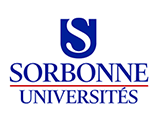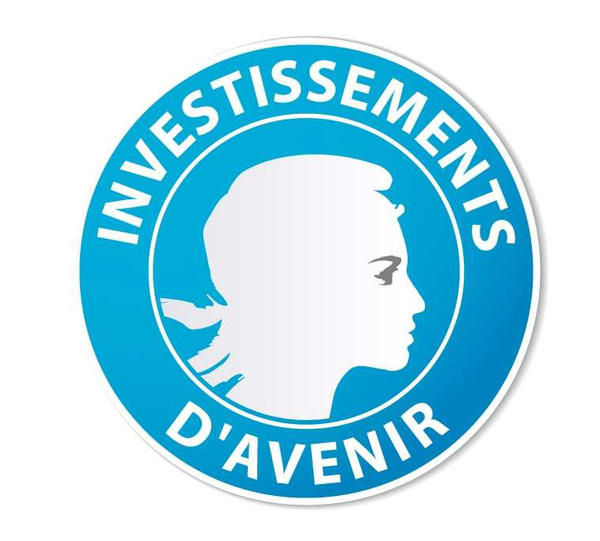SMART School on
Computational Social and Behavioral Sciences
Paris, September 5 - 7, 2018
Enjoy the video of 2016 edition!
Context:
Understanding human behavior by using both computer vision and signal processing has become of major interest since the emergence of numerous applications in various domains, such as social signal processing, affective computing or human-computer interaction.
The key idea of a quantitative modeling and understanding of human behaviors through computational models is a long-term goal. Recent advances in mathematics, computer science, signal processing, machine learning (including Big Data) and robotics now make it possible to consider the development of tools or systems for human-human interaction or human-computer interaction analysis. This will break a new ground for future studies of human behaviors through the lens of complementary domains such as social neuroscience, psychology, sociology, education as well as psychiatry.
The 2018 edition is co-organized with ANIMATAS, a H2020 Marie Sklodowska Curie European Training Network (MSCA – ITN – 2017 - 765955 2). The ANIMATAS project develops new standard of social capabilities for intuitive Human Machine Interaction (HMI) that are transferable across virtual and robotic platforms and different contexts. ANIMATAS puts a higher focus on the social aspect of key computational competencies intuitive HMI in the specific context of schools.
Objectives:
The SMART School on Computational Social and Behavioral Sciences will contribute to bridge the gap between the areas of social neuroscience, psychology and educational sciences on the one hand, and mathematics, machine learning, artificial intelligence, autonomous agents and social signal processing on the other hand. This interdisciplinary framework will be efficient only if regulatory and ethical issues are taken into account at the early steps of the research.
This school allows completing the training of PhD students in computational sciences whom research require a background in human behavior analysis, modeling and/or synthesis.
The main topics of 2018 edition are Human Machine Interaction & Education.
Tracks:
- Theories and methods for the study of emotions
- Sensing human behaviors, emotions and sentiments
- Computational models for Social Robotics and Embodied Conversational Agents
- Robots for Learning
- Interactive Machine Learning
- Ethics in Human-Machine Interaction
- Industrial applications of Human Machine Interaction Systems in Educational Settings
Preliminary list of speakers:
- Ruth Aylett (Heriot-Watt Univ.)
- Tony Belpaeme (Ghent Univ., Plymouth Univ.)
- Joost Broekens (Interactive Robotics)
- Ginevra Castellano (Uppsala University)
- Raja Chatila (ISIR, Sorbonne University)
- Pierre Dillenbourg (EPFL)
- Jonathan Gratch (USC)
- Friedrich Hesse (University of Tuebingen)
- Arvid Kappas (Jacobs University)
- Vanda Luengo (LIP6, Sorbonne University)
- Pierre-Yves Oudeyer (INRIA)
- Ana Paiva (INESC-ID)
School application:
Ph.D. students, post-docs, junior and senior researchers are encouraged to apply.
Applications should contain:
- CV describing the academic background, webpage, other information that you may consider important.
- Motivation letter.
- Student certificate.
- Each student is strongly encouraged to submit a reference letter
Submission through the website
Applications to attend SMART School 2018 should be received 8 June.
Applicants will receive notification of acceptance by mid June 2018.
The school will be open to about 30 qualified, motivated and pre-selected candidates.
Registration fees:
The SMART School is free for all pre-registered participants.
Registration includes lunches, coffee breaks, attendance to the school (lectures, practicals and social events).
Local information:
The school will be hosted by the Cordeliers Campus of Sorbonne Université from 5 to 7 September, 2018.
15 Rue de l'Ecole de Médecine, Paris
Accomodation:
Some links that can be useful in order to give you ideas about your accomodation:
- CISP:
http://www.cisp.fr/cisp/pages/home-11.html
http://www.cisp.fr/cisp/pages/home-38.html
http://www.cisp.fr/cisp/pages/home-17.html
- CROUS PARIS:
http://www.crous-paris.fr/article.asp?idcat=AAD
- CIUP:
- FIAP Jean Monnet:
http://www.hostelworld.com/hosteldetails.php/FIAP-Jean-Monnet/Paris/2065
http://www.fiap.asso.fr/individual-accommodation.html
- MIJE:
https://www.mije.com/en/hebergement-groupe-paris
- EE RI:
http://ee-rip.com/en/accomodation.html
School Directors:
Raja Chatila (ISIR, SMART)
Mohamed Chetouani (ISIR, SMART)
Contact: [email protected]


